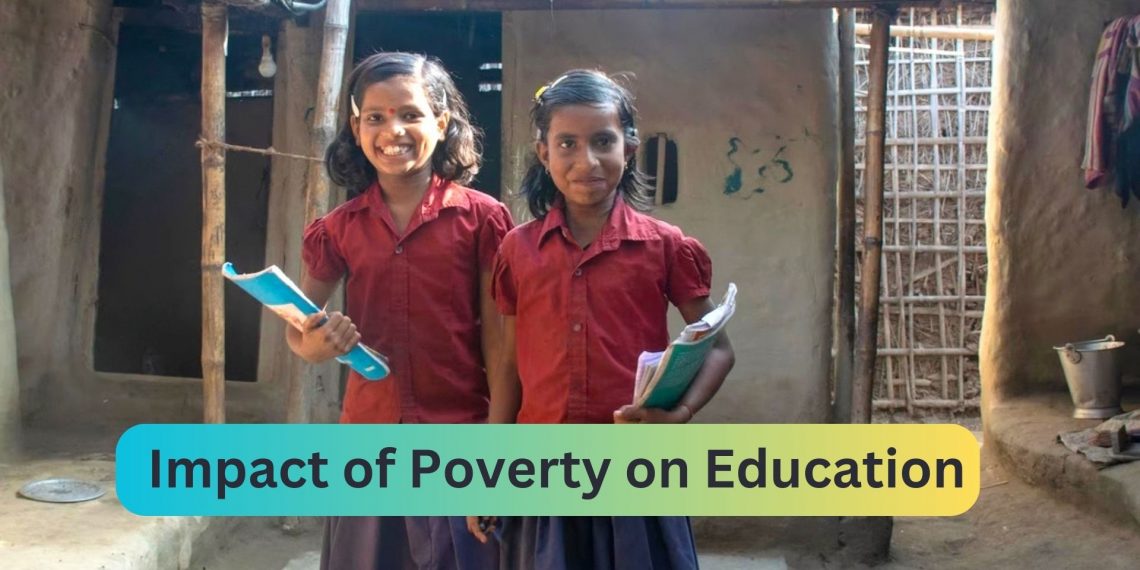Education is often hailed as the great equalizer, offering individuals from all walks of life the opportunity to transcend their circumstances and achieve their full potential. However, for millions of children around the world, the promise of education remains elusive, overshadowed by the harsh realities of poverty. In this blog, we will delve into the profound impact of poverty on education, exploring the barriers it creates and the strategies we can employ to break the cycle of disadvantage.
Understanding Poverty and Education
Poverty is not simply a lack of financial resources; it encompasses a myriad of interconnected social, economic, and environmental factors that perpetuate inequality and deprivation. In the context of education, poverty manifests in various ways, depriving children of the resources, opportunities, and support systems they need to thrive academically.
One of the most glaring consequences of poverty on education is inadequate access to quality schooling. In many low-income communities, schools are under-resourced, overcrowded, and ill-equipped to meet the diverse needs of students. This lack of investment in education perpetuates a cycle of disadvantage, trapping children in substandard learning environments that fail to nurture their potential.
Furthermore, poverty often forces children to confront a host of additional challenges outside the classroom, from unstable housing and food insecurity to lack of access to healthcare and social services. These stressors can have a profound impact on children’s ability to learn, affecting their cognitive development, academic achievement, and overall well-being.
The Impact of Poverty on Learning Outcomes
Research has consistently shown that poverty has a detrimental effect on learning outcomes. Children from low-income backgrounds are more likely to perform below grade level, drop out of school, and experience long-term academic setbacks compared to their more affluent peers. This achievement gap persists throughout their educational journey, limiting their future prospects and perpetuating cycles of intergenerational poverty.
There are several factors that contribute to the disparity in learning outcomes between children from low-income and high-income families. Limited access to early childhood education and enrichment programs, for example, can hinder children’s readiness for school and impede their academic progress. Similarly, the stressors associated with poverty, such as housing instability and food insecurity, can create a hostile learning environment that impedes children’s ability to concentrate, retain information, and engage in classroom activities.
Moreover, poverty often exacerbates existing inequalities in the education system, disproportionately affecting marginalized groups such as racial minorities, immigrant communities, and students with disabilities. These students face additional barriers to academic success, including discrimination, cultural bias, and lack of access to supportive resources and services.
Breaking the Cycle: Strategies for Addressing Poverty and Education Inequality
While the challenges posed by poverty in education are complex and multifaceted, there are strategies that can help mitigate its impact and create more equitable learning opportunities for all children.
- Invest in Early Childhood Education
Early intervention is crucial for addressing the impact of poverty on education. By investing in high-quality early childhood education programs, we can provide children from low-income backgrounds with the foundation they need to succeed academically. These programs should be accessible, affordable, and culturally responsive, addressing the unique needs of diverse communities and promoting early literacy, numeracy, and social-emotional development.
- Improve School Funding and Resources
Ensuring equitable funding for schools is essential for addressing disparities in educational opportunity. Schools in low-income communities should receive adequate resources and support to attract and retain qualified teachers, provide comprehensive support services, and offer enriching extracurricular activities. Additionally, investments in technology, infrastructure, and classroom resources can help level the playing field and create a more conducive learning environment for all students.
- Provide Wraparound Support Services
Many children living in poverty face barriers to learning that extend beyond the classroom. Providing wraparound support services, such as access to healthcare, mental health counseling, nutritional assistance, and housing support, can help address the holistic needs of students and create a supportive ecosystem that promotes academic success. Collaborating with community-based organizations, social service agencies, and healthcare providers can help schools connect students and families with the resources they need to thrive.
- Foster a Culturally Responsive Curriculum
Incorporating culturally responsive teaching practices and diverse perspectives into the curriculum can help engage students from diverse backgrounds and promote a sense of belonging in the classroom. By validating students’ cultural identities and experiences, educators can create a more inclusive learning environment that fosters academic achievement and social-emotional well-being.
- Promote Family and Community Engagement
Engaging families and communities as partners in education is essential for addressing the impact of poverty on learning outcomes. Schools should actively involve parents, caregivers, and community members in decision-making processes, outreach initiatives, and educational programming. By fostering strong relationships between schools and families, we can create a support network that empowers children to succeed academically and thrive in school.




